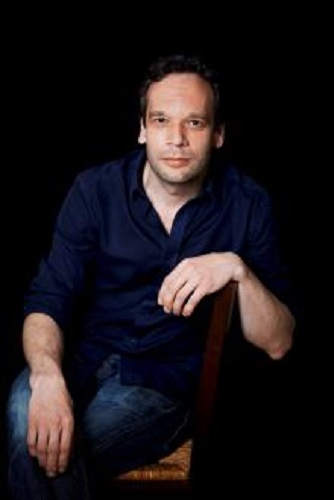De Amerikaanse schrijver Nick McDonell werd geboren op 18 februari 1984 in New York. Zie ook alle tags voor Nick McDonell op dit blog.
Uit: A Friendly Fighting Force (Diary in The London Review of Books, 2020)
“Most wars today are proxy wars. Russia, Iran, the US and others rely on local forces to achieve military goals like annexing Crimea, or defeating Islamic State. Proxies, in turn, exploit foreign interests for their own purposes, and sometimes deal with competing, even warring, interests at the same time. What they never do, it seems, is call themselves proxies. They see themselves instead as allies, even friends, of their patrons. ‘Since 2004, we have been friendly with the American forces,’ Wahida Mohamed al-Jumailyh, a militia leader in Tikrit told me. ‘They even came to our house, and I have pictures of them with me.’ We were having lunch in Baghdad’s Babylon Rotana Hotel, a luxury tower on the banks of the Tigris. Several of her bodyguards sat at the next table, smoking, surfing the web and drinking lemon soda. None wore a uniform: they were paramilitaries. Wahida showed me a US military app on her phone, and selfies in which she’s standing beside American soldiers. Then she showed me photos of herself with a different patron: the Iraqi militia commander Abu Mahdi al-Muhandis, who was assassinated in January by American drones while travelling in a convoy with his patron, Qasim Soleimani. Swiping further, and with a certain amount of pride, she showed me pictures of herself torturing people and desecrating the bodies of her enemies. In one, she raised a fist in triumph over a naked man lashed to the bonnet of a truck. In another, she held aloft a severed head.
Wahida is the daughter of a lorry driver. In 1998, at the age of 16, she married an officer in Saddam Hussein’s Ministry of Defence; after the invasion, he joined the US-backed government. When her husband died in an IED blast in 2007, Wahida began fighting his killers – members of a precursor of Islamic State – in the interests of survival, vengeance and American cash. And so she became a proxy for US forces. Or, as she put it to me, ‘my brothers and I formed a faction, a friendly fighting force.’ When the Americans began to withdraw from Iraq in 2011, Muhandis became a new patron of Wahida’s. Like the Americans, he saw IS and its allies as a threat to Iraq. But he saw the Americans as a threat too: his militia, Kata’ib Hezbollah, often attacked US troops with support from Soleimani and Iran. This didn’t stop Wahida gathering air-strike intelligence for the US military when it returned in force to Iraq in 2014. In the years since, she has been a proxy for both Washington and Tehran.
I haven’t been in touch with Wahida since her American patrons killed her Iranian patrons. I suspect her sympathies lie with Muhandis’s militia, since it’s made up of fellow Iraqis. It’s now being integrated into the Iraqi state as part of the Popular Mobilisation Forces, or al-Hash’d al-Shaabi. When Western commentators talk about proxies in Iraq, they’re usually referring to the Hash’d, which they often describe as ‘Iranian-backed militias’. Certainly some of them are.”

De Duitse dichter en schrijver Björn Kuhligk werd geboren op 19 februari 1975 in Berlijn. Zie ook alle tags voor Björn Kuhligk op dit blog.
Horizonbeschouwer
Hier is een bos
daar zijn de bomen
daarin zijn de ringen
daarin slaapt de angst
je geeft een klap met de bijl
en drinkt de harssteen mee
en het lievelingsdier
dat is de aap in de dierentuin
die kun je bezoeken
en hij jou niet
Vertaald door Frans Roumen

Zie voor nog meer schrijvers van de 18e februari ook mijn blog van 18 februari 2019 en eveneens mijn blog van 18 februari 2018 deel 2.
